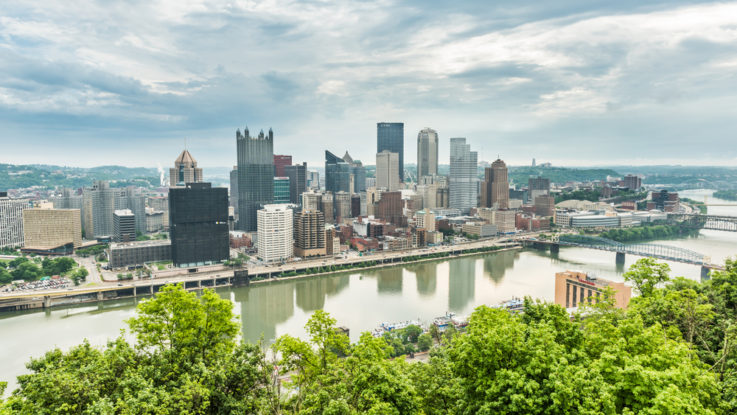
Mayor William Peduto of the city of Pittsburgh, Pennsylvania and the city’s Shade Tree Commission recently announced their Equitable Street Tree Investment Strategy. The strategy seeks to create and maintain an even distribution of urban forest resources, with all neighborhoods in Pittsburgh enjoying the benefits provided by trees. Such benefits include: improved air quality, reduced stormwater runoff, reduced heat island effect, energy savings, an increased sense of community, habitats for wildlife, and the creation of economic opportunities.
The strategy has the goal of identifying low income/low canopy neighborhoods, supporting education and increased awareness on the value of the urban forest, developing a tree care infrastructure, planting trees, and funding focused, proactive, and cyclical tree maintenance schedules. Improved maintenance will include pruning, sidewalk repair, and stump removal
The work will be done in four phases:
- Phase 1: Using available data, they will identify 10 low-income and low-canopy neighborhoods annually;
- Phase 2: Shade Tree Commission Investments in those 10 neighborhoods will be approved;
- Phase 3: Shade Tree Commission Investments in the 10 neighborhoods will be monitored to gauge success in increasing the urban forest; and,
- Phase 4: The next 10 neighborhoods for investment will be identified.
The city plans to announce the first phase of 10 neighborhoods by Arbor Day on April 30.
“We often hear the reluctance and weariness of residents to celebrate new tree plantings because they see damage to sidewalks and properties from earlier initiatives and are often responsible for care and maintenance that they are unprepared to provide,” said Jamil Bey, member of the Shade Tree Commission. “The Equitable Street Tree Investment Strategy acknowledges the community’s concerns and seeks to build trust by customizing communications and neighborhood invitations to participate. It will help the city be more effective with caring for trees in neighborhoods that have not seen much investment. As a member of the Shade Tree Commission, I am pleased to be part of contributing to this strategy for centering community voices in the pursuit of equity in city operations and duties.”